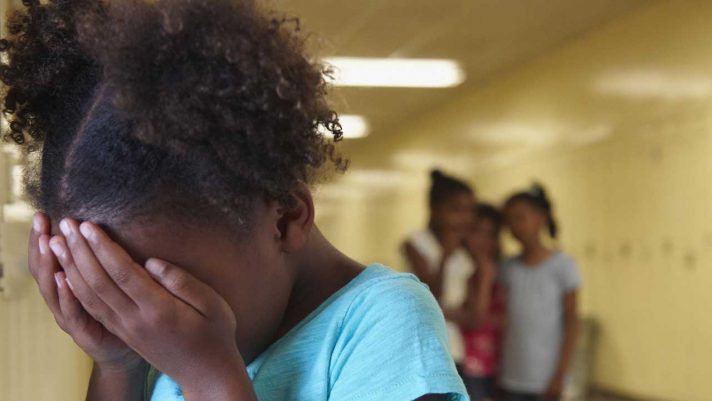By
Even as Nigerians patiently await the outcome of investigation going on over the untimely death of 12-year old Sylvester Oromoni , student of Dowen College, Lekki in Lagos, the salient issues troubling many keen watchers of the education system are those of bullying and cultism now rampart in schools. So far, the narratives on Oromoni, between his parents and the school authorities are conflicting. But no one is in doubt of the wide prevalence of bullying, independently or in conjunction with cultism in schools, particularly secondary schools. For the fact that one of the narratives link Oromoni’s death to cultism and bullying, no time could be more apt for government and other stakeholders such as school authorities and of course parents to ponder more closely at the issues. With or without the Dowen incident, the twin phenomena are capable of compromising the gains of schooling and endangering the country’s future, given that this belongs to the youths of today.
The death of Oromoni is no doubt heart-rending; and if nothing else, it brings to the fore the need to confront bullying and associated malfeasance in schools. Irrespective of where the investigations leads to, the fact of loss of a dear life, of a promising teenager cut in his prime; and the unspeakable trauma unleashed on the parents and other family members speak volume of concern. According to his family, Oromoni was allegedly tortured to death by some other students for reasons that are still subject of investigations, with some narratives alleging that he was being forced to join a cult. The school authorities have maintained that he sustained injuries while playing football.
Nevertheless, the authorities should pursue this case with diligence in order to shed lights on the twin evils of cultism and bullying in schools and the need to take proactive steps to stem the menace. There are grave lessons for parents, school authorities, governments and the general populace.
For a start, parents and guardians must play more active roles in the lives of their children and wards rather than leaving things to society. They must be friends to them and take keener interest in what they do, observe their behavioural patterns and give them quality advice before things get out of hand. No doubt, many parents have failed in this regard, having abdicated their duties in the course of winning bread for their families.
On the specific issue of bullying, children must be counselled not to just sulk and acquiesce to the demands of the bully but to resist and speak to the authorities persistently until they are heard and perpetrators brought to book. Bullying must not be tolerated at any level. Parents must not allow the slings and arrows of existential struggle to pierce their relationships with their children and wards. Afterall, the bulk of their struggle is to provide better living conditions for these children. Material comforts are good but the natural duty of care and guidance for these children is sacrosanct, hence the need to create quality time for this sacred duty.
Similarly, schools are set up not only to provide academic certification but to mould the character of these vulnerable minds in positive ways. Increasingly in Nigeria, schools are focusing more on peripheral things rather than their core mandates. Even the duty of certification is pursued unethically with patent stories of connivance with students to perpetrate examination malpractices in order to shore up the image of the school in academic performances. Glamour, conspicuous consumption and other inanities are unwittingly encouraged by school authorities. School authorities and teachers are reminded of their core mandates of standing in loco parentis; that is in place of parents, and by extension, society at large for these students. The ambience of schools must therefore guarantee the physical and socio-psychological safety expected.
Safety policies must be emplaced, reviewed periodically and enforced without regard to the status of the parents in society. Rules and regulation must be implemented with even-handedness. When sanctions are applied, deterrence of vices can be enhanced.
Sadly, the root of the decay in the educational sector can be traced to neglect by successive governments at various levels. Public schools have been neglected or underfunded to the extent that parents are no longer comfortable with them. Parents are forced to drift in droves to the private entrepreneurs who set up schools, mostly with the profit motive more paramount. Were they to compete with public schools for the social responsibility thrust, some of their excesses may be tamed. Even the admirable mission schools were taken over by governments only to be neglected and turned into ghosts of their former selves.
Thus, all sorts of inadequacies are rife and no serious efforts are made to redress them. Governments have simply abandoned their duties as enshrined in Section Two of the Constitution of the Federal Republic of Nigeria containing the ‘Fundamental Objectives and Directive Principles of State Policy’. This section, even though not justiciable, saddles government with the provision of education and welfare for the people; and contains the most important provision at the core of governance. The struggle to make this section justiciable must be sustained in order to make government accountable to the people and in accordance with the tenets of democracy. Government officials should take this section seriously as the primary purpose of their being in government.
For the general populace, there must be a resolve to stamp out cultism, bullying and other associated crimes in schools. All Nigerians should contribute their quota in their respective spheres of influence for a joint effort and to arrive at an acceptable destination.
Kindly share this story:

